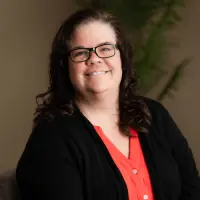About Tellurian – Chandra’s House of Hope (Women’s Sober Living)
Tellurian Behavioral Health runs a women’s sober living home called Chadra’s House of Hope. It is located on the east side of Madison, Wisconsin. Clients can stay in a safe environment that allows them to continue focusing on recovery and maintaining their sobriety.
Sober Living for Women in Madison
Chandra’s House of Hope was founded in memory of Chandra Hill, who took her life after a decade of heroin addiction and co-occurring mental illness. Chandra’s father partnered with Tellurian in 2017 to provide a sober transitional living for women like his daughter.
Now, Chandra’s House of Hope offers hope and healing for four women at a time who are in recovery. The monthly rent includes a private bedroom, shared laundry and parking. It also includes utilities such as internet and cable, a gym membership and detergent.
Each woman will work with a mentor during their stay. This mentor will provide encouragement, support and a way forward as she shares her lived experience with recovery.
Rules for Sober Living Admittance
To be considered for admittance, you must be sober for at least 30 days. Random urine testing will take place to help keep you accountable to your recovery. Residents must attend a weekly house meeting and submit a weekly recovery plan to the House Manager by the deadline.
I like that residents must also attend at least 3 approved sober activities a week. These can be AA/NA meetings, Smart Recovery meetings, and Celebrate Recovery meetings. All residents will also be required to keep consistent employment or be enrolled in school.
Latest Reviews
Rehab Score
Accepted Insurance





Other Forms of Payment
Self-pay involves paying for treatment out of your own pocket. You can use savings or credit, get a personal loan, or receive help from family and friends to fund your treatment. If you don't have insurance or your insurance plan doesn't cover a specific program, self-pay can help ensure you still get the care you need.
Addiction Treatments
Levels of Care
Sober Living Houses (SLHs), aka sober homes or halfway houses, are safe, substance-free, supportive living facilities for those recovering from substance abuse. Ideal for those who've just been through inpatient or outpatient treatment, SLHs are supervised environments with rules that support sobriety, such as curfews, shared chores, and therapeutic meetings. Residents are also often trained on life skills and coping skills to make it easier to transition into society. SLHs also provide a strong sense of community that can lead to the kind of deep and lasting connections with other sober individuals that supports a new, healthy lifestyle.
Treatments
The goal of treatment for alcoholism is abstinence. Those with poor social support, poor motivation, or psychiatric disorders tend to relapse within a few years of treatment. For these people, success is measured by longer periods of abstinence, reduced use of alcohol, better health, and improved social functioning. Recovery and Maintenance are usually based on 12 step programs and AA meetings.
The goal of drug rehab in Wisconsin is to address drug addiction as a complex issue that involves physical, mental, and relational aspects. During rehab, treatment focuses on each of these areas and gives you the tools you need to achieve and maintain sobriety.
A combined mental health and substance abuse rehab has the staff and resources available to handle individuals with both mental health and substance abuse issues. It can be challenging to determine where a specific symptom stems from (a mental health issue or an issue related to substance abuse), so mental health and substance abuse professionals are helpful in detangling symptoms and keeping treatment on track.
Opioid rehabs specialize in supporting those recovering from opioid addiction. They treat those suffering from addiction to illegal opioids like heroin, as well as prescription drugs like oxycodone. These centers typically combine both physical as well as mental and emotional support to help stop addiction. Physical support often includes medical detox and subsequent medical support (including medication), and mental support includes in-depth therapy to address the underlying causes of addiction.
Substance rehabs focus on helping individuals recover from substance abuse, including alcohol and drug addiction (both illegal and prescription drugs). They often include the opportunity to engage in both individual as well as group therapy.
Programs
Adult rehab programs include therapies tailored to each client's specific needs, goals, and recovery progress. They are tailored to the specific challenges adult clients may face, including family and work pressures and commitments. From inpatient and residential treatment to various levels of outpatient services, there are many options available. Some facilities also help adults work through co-occurring conditions, like anxiety, that can accompany addiction.
Young adulthood can be an exciting, yet difficult, time of transition. Individuals in their late teens to mid-20s face unique stressors related to school, jobs, families, and social circles, which can lead to a rise in substance use. Rehab centers with dedicated young adult programs will include activities and amenities that cater to this age group, with an emphasis on specialized counseling, peer socialization, and ongoing aftercare.
Clinical Services
Group therapy is any therapeutic work that happens in a group (not one-on-one). There are a number of different group therapy modalities, including support groups, experiential therapy, psycho-education, and more. Group therapy involves treatment as well as processing interaction between group members.
In individual therapy, a patient meets one-on-one with a trained psychologist or counselor. Therapy is a pivotal part of effective substance abuse treatment, as it often covers root causes of addiction, including challenges faced by the patient in their social, family, and work/school life.
Amenities
-
Private Setting
-
Private Rooms
-
Gym
Staff

Michael Florek
Founder

Kevin Florek
CEO

Steve Lawrence
CFO

Kelly Murphy
Director of Human Resources

Dr.Brian Lochen
Medical Director

Allison Maly
Director of Admissions

Dan Piorkowski
Director of Information Services
Contact Information
1053 Williamson St
Madison, WI 53703




